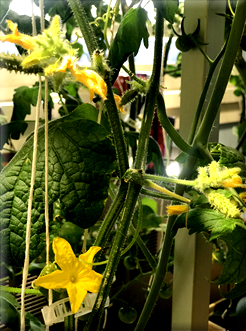Hydroponics Lab

![]()

Hydroponics Lab
The Mamie Fay School Hydroponic classroom lab provides tools to 107+ students for a truly hands-on science experience, sparking interest in the pursuit of modern innovation, research and design.
The lab includes hydroponic growing systems, a composting-station, a germination rack, and a integrated pest management station for pesticide-free maintenance.
![]()
The greenhouse provides a year-round space to teach students about environmental sciences, climate change, conservation, energy efficiency, food production, health and nutrition, and sustainable development.
Hydroponics uses a mineral-based nutrient solution to nourish plants in a soil-less environment. In and active hydroponics system, this nutrient solution is re-circulated, passing over the roots several times. This is the primary reason why plants grow in hydroponics use 80-90% less water than plants grown using conventional techniques. Seeding stations teach students about how plants are traditionally cultivated.


As many as 108 plants can be grown per school year

This greenhouse can grow roughly 902 pounds of produce a year, including lettuces, herbs, micro-greens, cucumbers, tomatoes, peppers, eggplants and squash for classroom snacks, cooking demos, after school programs, community donations, student-led farm stands and more.

Because pesticides are not used anywhere in the greenhouse, ladybugs protect plants from pests like aphids.

The lab will allow students to design their own experiments and let their imagination dictate the limit of their accomplishments.




